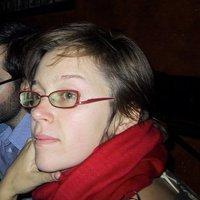Event
When Haydn set Carlo Goldoni’s libretto Il mondo della luna for the wedding festivities at Esterháza in 1777, he did not include the enigmatic moral of the original. His finale celebrated happiness, fortune and prosperity. These three concepts echoed revolutionary ideals from North America that were being reported in newspapers across Europe. But happiness was also one of the most prevalent concepts in opera buffa—a testament to the era’s obsession with it. For the first time since antiquity, happiness attained centrality in philosophy, literature, and politics. It was not merely a cliché of opera buffa’s happy endings, but an elastic concept that promised to be either the greatest boon to society or its greatest threat. But was this also true in opera? What did happiness mean to its characters? And what did it sound like?
I am interested in the sentiments, sensations, and music of happiness in opera buffa. This talk focuses on Goldoni’s Il mondo della luna and investigates the relationship between the pursuit of happiness and a character’s psychology and physiology. Goldoni’s little-known explication of human happiness makes it possible to reconsider the consequences of a character’s definition of happiness on their minds and bodies. And Giovanni Paisiello’s setting for the Russian Empress Catherine the Great in 1783 allows us to ask how Goldoni’s ideas of happiness were received and tailored to distant local circumstances years after the Declaration of Independence had faded from European newspapers. Through this inquiry, we find that both the text and music contained an ethics of emotions taken from moral philosophy that established how characters should emote and happiness should sound.
0 0 1 257 1468 University of Pennsylvania 12 3 1722 14.0 Normal 0 false false false EN-US JA X-NONE
